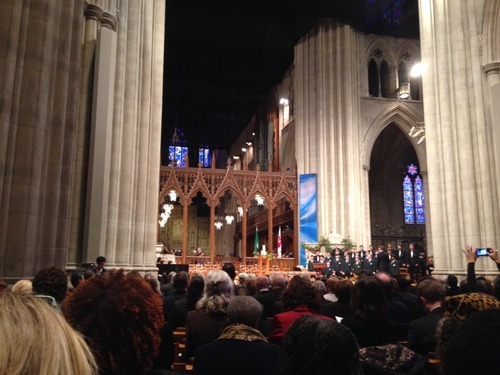Photo Credit: Darrow Montgomery/Washington City Paper
The People Issue
We asked, they answered—the 20 people who make D.C. what it is
Freshman At-Large Councilmember David Grosso won his seat in 2012 in an unlikely victory over incumbent Michael Brown. Fresh off successfully proposing to keep the District’s government open during the federal government shutdown last month, he’s on a crusade against the Washington Pigskins name and the criminalization of marijuana. —Will Sommer
It seems like over the past year there’s been a lot of people talking about the [Pigskins]name. What do you think is behind that?
David Grosso: The whole country has shifted in a way recently the last couple years on lots of important issues. The culture’s changing, the country’s becoming more aware of when your personal actions have an impact on people.
You’re coming off the shutdown, where you came up with the idea of not closing the city government. How do you think that turned out?
I think it was a big success. I think we got a lot of attention on the issue which we hadn’t gotten in a long time.
You have personal experience with a marijuana possession arrest. How did that play into your feelings on marijuana legalization?
I have two personal experiences actually with this situation that I think go hand in hand. Yeah, I was arrested for possession of a small amount of marijuana in 1993 in Florida. It was a misdemeanor with possession case, and it’s been well discussed in D.C.
But I think more interesting is an experience I had when I was growing up in the city here. We moved into the city when I was 16 years old, to the corner of Georgia and New Hampshire Ave on Rock Creek Church Road—my mom still lives there. That was in 1987. In 1987, in that neighborhood, there was no Metro, it was very poor, and it was a hotspot for dealing drugs on all those corners. I used to work at Col. Brooks Tavern over in Northeast.
I would go to work and I would come home at two, three in the morning, and park my car usually on the corner because there was no spot there, and walk by the corner of Rock Creek Church Road and Warder Street, where there’d be a gang of guys hanging out dealing drugs, right?
Probably more than a dozen times I walked by there, when the police were there with them up against the wall, searching these folks. Not once in my years of doing that did the police ever look twice at me. They didn’t push me against the wall; they didn’t question me. They didn’t ask me what the heck I was doing there. Not even glanced at.
I’m white, all those kids were black. It tells you something, and it makes you a little nervous that we’re going down the wrong path.
It’s like it’s already decriminalized for wealthy white people in D.C.
I won’t tell you what I had in my pocket, usually. They could’ve arrested me, too, and that’s the point.
To see the full People Issue click here.


